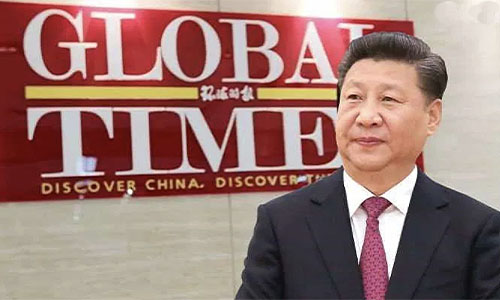
AMID ongoing trade disputes Beijing has instigated against Australia, the Republic of Congo — which is heavily indebted to China — has stripped three Australian mining firms of major iron ore projects under alleged “unlawful and arbitrary” circumstances.
The move comes as the Chinese Communist Party continues to wield considerable influence via debt-trap diplomacy on the African continent.
DISPUTE
Two Australian miners, Perth-based Sundance Resources and Equatorial Resources have triggered dispute resolution mechanisms after the Republic of Congo (ROC) government withdrew their mining licenses in violation of its mining laws, handing the projects to a mysterious entity called Sangha Mining.
Three projects located in the northwest of the ROC are in dispute, including Badondo (operated by Equatorial), Nabeba (Sundance) and Avima (Core Mining Congo).
The ROC Mining Code mandates that mining permits be granted exclusively to the company holding exploration rights to a project, according to a statement by Equatorial
By handing the permit to another company, Equatorial is arguing that ROC breached its own laws, as well as mining conventions and international law.
“Equatorial is surprised and shocked by the unlawful and arbitrary actions of the ROC government in awarding a mining license for Badondo to Sangha Mining,” the company stated.
Sangha Mining or its owners are unknown to both Sundance and Equatorial, who both claim the entity has no history of mining in the region.
INELIGIBLE
“The actions of the ROC government in granting multiple licenses to Sangha Mining are unprecedented, unlawful and unfair,” Equatorial stated.
“Sangha Mining has never held any research permit or exploration permit over Badondo and … has conducted no work at Badondo nor made any investment whatsoever … Sangha Mining is therefore ineligible for the grant of exploitation rights …” it continued.
Equatorial and Sundance are pursuing similar routes of arbitration.
Sundance will attempt to negotiate with the ROC. It conceded however that regaining its mining license is unlikely. Instead, a claim for compensation will also be pursued via international arbitration.
“This expropriation of iron ore mining permits and exploration licenses by the ROC is breathtaking in its size and audacity and in contempt of Congo’s mining laws and the Government’s oft-stated claims that it upholds its own laws,” Giulio Casello, CEO of Sundance said in a statement.
“The Nabeba deposit is the most advanced in the region because of the work done by Sundance over many years,” he said.
“When combined with the other two projects whose licenses have been expropriated, we are talking about approximately one billion tonnes of high-grade, direct-shipping iron ore within a 100km radius that have been illegally seized by the Congo Government.”
DEBTS
Sundance will push for compensation to the tune of US$8.76 billion.
The ROC recently obtained a US$449 million loan from the International Monetary Fund to help service major debts it owes to Chinese lenders.
In March, the country owed China US$2.56 billion, according to Reuters. The small central African nation has a gross domestic product of around US$11.26 billion, according to the World Bank.
Beijing has been a keen provider of flexible loans to developing African nations. The loans are free from the same scrutiny that surrounds lending from Western democratic nations.
According to the Observer Research Foundation, 49 of 54 African nations, as well as the African Union, have signed up to Beijing’s geopolitical centrepiece Belt & Road Initiative (BRI).
Despite the BRI being marketed as a joint infrastructure development program, it has been criticised for being nothing more than a vehicle for Beijing to expand its global influence via debt-trap diplomacy.
The dispute with the ROC has come amid a series of trade-related bans and suspensions by Beijing against Australian exports to the country including beef, barley, wine, coal, cotton, lobster, and timber.
REBUKE
The sanctions began soon after Foreign Minister Marise Payne called for a global investigation into the origins of COVID-19, which attracted a sharp rebuke from Chinese Ambassador to Australia, Cheng Jingye.
The latest move involving Australian iron ore miners comes as China struggles with power shortages and blackouts across seven provinces in the country.
The heavily coal-dependent power industry in China has been forced to ration power distribution, while the CCP at the same time continues its trade dispute, holding up seven million tonnes of Australian coal at Chinese ports.PC
MAIN PHOTOGRAPH: Chinese President Xi Jinping with indebted Congo’s then president Joseph Kabila.
RE-PUBLISHED: This article was originally published by The Epoch Times on December 15, 2020. Re-used with permission.
POLITICOM: China rattled by Australia ‘threat’
POLITICOM: Pride before profit as Aussies defy China












We swore after WWII that appeasement would never again be practised, but here we go again …
Just a whole lot more of the same, it appears.
Congo represents a financial threat.
What Beijing is currently doing to our traditional friends in Papua is a direct military threat.
Port Moresby believes it’s gaining a fishing port. China sees it more as a naval port.
Does anyone honestly believe Xi Jingping would allow the USA to build a fishing facility on the north coast of Taiwan?